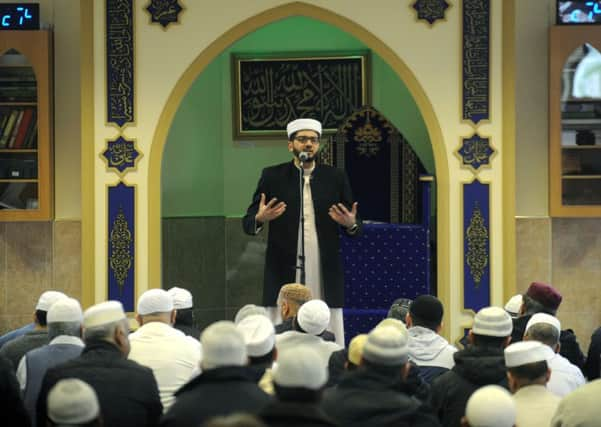Qari Asim: Ramadan, the Muslim fast that feeds appetite for sharing


Muslims abstain from food, drink, smoking, and sexual relations from dawn to sunset. Certain groups are exempt, including children, the elderly, the sick, women who are pregnant or breastfeeding, and people who are travelling.
As the Islamic calendar is based on the lunar calendar, Ramadan falls at different times, this year falling in the peak of summer. The hours of fasting are incredibly long during the summer.
Advertisement
Hide AdAdvertisement
Hide AdThis year British Muslims will have their breakfast at around 2am and then go without food and drink until 9.30pm.
From the outside looking in, Ramadan can seem very oppressive, or even a danger to health.
However, millions of Muslims across the globe have been fasting for centuries, without suffering any Ramadan-specific illnesses or diseases.
A number of scientific studies have actually demonstrated the health benefits of intermittent or short periods of fasting when diet is properly controlled.
Advertisement
Hide AdAdvertisement
Hide AdThere is no denying that Muslims will feel tired and weaker than usual due to the long hours of fasting but they will still carry on with their daily lives: going to school, working, playing, cooking.
People will still play football and follow the European Championships. Indeed, some of the world’s leading athletes and sports stars have managed to fast while performing at the highest levels.
Muslim political activists will still be on the streets campaigning for people to participate in the EU referendum, despite their empty stomachs.
It might come as a surprise, but in actual fact the four weeks of self-restraint is actually something that Muslims look forward to. The first few days can be testing both physically and spiritually, but people adjust to the new routine very quickly. Fasting is like a secret pact between each individual and their Lord; no other person knows whether someone has had a sneaky drink or a bit of food when alone, it is only God who knows.
Advertisement
Hide AdAdvertisement
Hide AdAs in other religions, fasting is prescribed not just for its physical benefits, but also for its positive mental and spiritual development.
Ramadan is designed to allow Muslims to rediscover and re-direct themselves and learn self-discipline. The physical fast is a symbol and outward expression of the real inner fast. The Prophet Muhammad says: ”Whoever does not give up foul language and evil actions, God is not in need of his leaving food and drink.”
Many thoroughly transform their attitude, behaviour and lifestyle and hope that these ethical practices will remain with them for the rest of the year.
Ramadan stimulates the ethos of sharing and caring, extra generosity, respect and giving preference to fellow human beings. We remember those less fortunate than ourselves – whether they are the homeless and refugees in our hometowns or those suffering displacement and unrest in Syria. We give away money that would otherwise be spent on lattés, pastries and ice-creams to the poor and the needy.
Advertisement
Hide AdAdvertisement
Hide AdThe charity and generosity shown in this month strengthens the human bond and the message that there is enough in the world for everyone’s need but not for everyone’s greed.
Ramadan is a time during which human empathy and compassion are showcased by true Muslims, a far cry from the behaviours of some who misappropriate the name of the religion for their own evil goals.
Ramadan is also a time of community; it is customary for Muslims to invite their neighbours and friends to share their evening meal – Iftar. Many families take it upon themselves to prepare food for the whole community to share.
In the spirit of this sentiment, Leeds Makkah Mosque invites people from across Yorkshire to join in the evening feast every night for the whole month.
Advertisement
Hide AdAdvertisement
Hide AdThese community Iftars are aimed at connecting those of different cultures and backgrounds, giving people an opportunity to make new friendships and experience the feeling of community and generosity that are abundantly displayed during Ramadan.
Makkah Mosque will welcome everyone to the mosque on Thursday and hold The Big Iftar – a national initiative for people of all beliefs and backgrounds to share a meal together.
Visit makkahmasjid.co.uk
Qari Asim MBE is an imam at Makkah Mosque in Leeds.